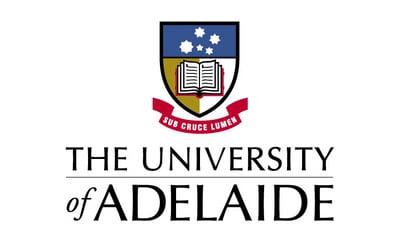Lumen Wirltuti:Warltati 2025 - Flipbook - Page 45

As well as in medical applications, this research could have
wide-reaching impacts on the future of radiation safety measures
in diverse arenas, including in combat zones and during space
travel. In the long term, Chris’s team hopes to see this daisy-derived
medicine available in hospitals, nuclear disaster response kits, and
spacecraft; anywhere acute radiation poses a risk.
The dedication of his team and supporters like Fiona continues
to be motivational. “Each time I have come up against a major
hurdle in how to develop parthenolide into a tablet which can
be given to patients, I have been impacted and heartened by the
willingness of people to help solve the problems, with the goal
of making better cancer therapies,” Chris says.
THE GENEROSITY OF THOSE
WHO CAME BEFORE US, AND
THEIR FORESIGHT AND
COMMITMENT TO EDUCATION,
RESEARCH, AND COMMUNITY
WELFARE, CONTINUES TO SHAPE
OUR UNIVERSITY TODAY.
support plays in early-stage innovation: “Support allows us to
advance the development of new ideas, new avenues of research,
and fund and seed the critical areas of new science,” he says.
As the University, through SAiGENCI and other research teams,
continues to lead this vital work, support from passionate donors
like Fiona helps bring globally significant discoveries from the lab
to the patient.
Thanks to our community, the impact of The Daisy Project may
one day reach around the world, into space, and far into the future.
Claire Bowman is an Alumni Relations Officer for the University. Main
images by Isaac Freeman, photographic editor of Lumen. Image of Daisy
Project supporter Fiona Hemstock with researcher Dr Katherine Morel
in the SAiGENCI laboratories supplied.
Fiona certainly understands the value of world-leading research
projects, from personal experience. “I am alive because of medical
research,” she says. “I have undergone several illnesses which used
to be life-threatening, including cancer and polio, and of course
Covid, and I am lucky that some people cared enough to discover
and produce effective treatments.
If you would like more
information about how you
may be able to make a
difference to future
generations, please contact
the University Development
team via this QR code, by email
to development@adelaide.edu.au
or by phone +61 8 8313 5800
“The community needs to support accredited medical research
so that we all benefit. We all know someone who has suffered from
cancer.”
The Daisy Project represents the best of what multi-disciplinary
university research can achieve: innovation that reimagines and
builds upon nature and our existing knowledge to create solutions
to global challenges. Chris Sweeney highlights the vital role donor
LUMEN